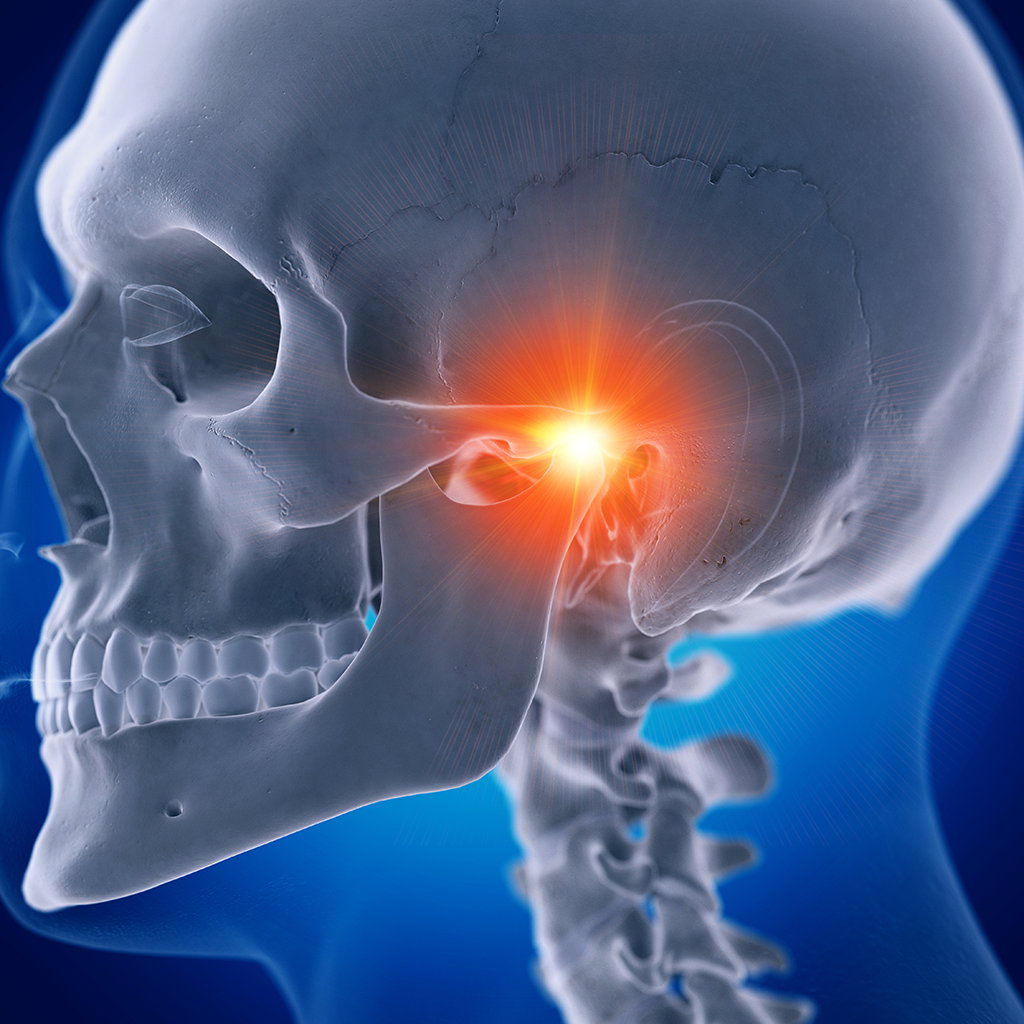
How a Head and Neck Surgeon Can Help Treat TMJ Disorder | McKinney, TX
Photo By SciePro at Shutterstock
TMJ is the commonly used term to describe disorders of the Temporomandibular joint (TMJ) which are usually temporary. Simple things like dentist office visits, sleeping in the wrong position, grinding teeth and other common causes can trigger an onset of TMJ disorder. In other cases, the cause is much more serious and may require the attention of a head and neck surgeon. If you are located in McKinney, TX, here are some reasons you may need a head and neck surgeon to treat your TMJ disorder.
What is TMJ?
The temporal bones (lower lateral skull walls) and the mandible (jaw) bones make up the “temporomandibular” bones. These two sets of bones are joined together by soft tissues and cartilage and act as a hinge allowing the jaw to close and open. People often refer to any pain or discomfort associated with their jaw as “TMJ” when that is the name of the joint itself. Temporomandibular Disorder (TMD) is the medical term for problems associated with the Temporomandibular Joint (TMJ). TMJ disorder causes pain and discomfort when the joint is out of alignment which inhibits the jaw’s natural smooth motion. In some cases, treatment for TMJ disorder requires the expertise of a surgeon.
Symptoms of TMJ
Patients suffering from TMJ disorder most often complain about their jaw having greatly decreased mobility. In some cases, the pain is unbearable and they are unable to open their mouths much at all. Other symptoms can be:
- Pain in or around the ear
- Hearing problems
- Tinnitus (ringing in the ears)
- Earaches
- Pain or tenderness in the jaw joint area, face, temples, or neck and shoulders
- Difficulty chewing
- Lack of mobility of the jaw that feels locked or stuck
- Difficulty chewing
- Popping or clicking sounds when closing or opening the mouth
- Facial swelling
- Tooth pain
- Headaches
- Dizziness
Patients with the most severe symptoms are most often the ones that seek medical help from a head and neck surgeon.
Causes of TMJ Disorder
Temporary TMJ disorder can result from lengthy dentist office visits where the mouth is left open for longer periods of time for procedures like crowns and root canals. Dental work itself can trigger symptoms by causing swelling, pain, and discomfort in the joint area. Temporary TMJ disorder can also result from sleeping in a position that creates pressure on one side of the jaw. Stress is also a temporary cause of TMJ disorder because it can cause tension in the shoulders and neck which can affect the joint. Stress can also be a factor because it can cause patients to clench their teeth.
TMJ disorder that results from teeth grinding can become chronic if the teeth grinding itself is chronic. Many patients find relief from this issue by using a nightguard. Chronic TMJ disorder can be caused by an injury to the neck, face, or jaw or by medical conditions such as arthritis. Patients with chronic TMJ disorder are more likely to be in need of a head and neck surgeon.
When to Seek a Head and Neck Surgeon
Patients suffering from temporary TMJ disorder often find that it resolves on its own with over-the-counter pain relief. For patients who aren’t able to find relief through additional soft-tissue therapies and other non-invasive treatments, a head and neck surgeon has other options available. You should make a consultation with a head and neck surgeon in the following situations:
- Your symptoms are severe
- You are unable to open or close your mouth completely
- Your symptoms are getting worse
- You have difficulty eating or drinking
- You have an underlying disease or structural problem confirmed by another specialist
- You feel consistent pain that remains intense despite other treatments
How a Head and Neck Surgeon Helps TMJ
A head and neck surgeon has several procedures available to bring relief to TMJ pain. One common procedure is arthrocentesis which is accomplished by injecting fluid into the joint which flushes out byproducts from inflammation and helps to reduce pressure. Because this procedure is minimally invasive, it is often the preferred first approach.
Another method commonly used is arthroscopy. Arthroscopy involves inserting a small tube called a cannula through a tiny slit that allows the surgeon to perform various procedures with tiny surgical tools through the tube. Arthroscopy is less invasive than open joint surgery and is preferred due to the reduced recovery time.
Open joint surgery is another option but is usually reserved for specific medical conditions such as tissue or bone growth that prevents the joint from moving or in cases when arthroscopy is not an option.
Treatment for TMJ Disorder at NextGen
Dr. Eftekhari MD at NextGen is a highly skilled and experienced medical professional who provides services to patients in McKinney, TX. He is a head and neck surgeon who also has specialties in other types of surgery that have to do with the head, neck, jaw, and oral cavity. Dr. Eftekhari treats adult patients as well as pediatric patients. NextGen offers the current most advanced treatment options available to bring relief to your TMJ pain.
Contact NextGen Today
NextGen OMS, Facial, Head & Neck Surgery has been helping patients find relief for TMJ and other medical issues in the McKinney, TX, area since 2015. If you are experiencing TMJ pain that is chronic, severe, or seems to be getting worse and other therapies and pain relief are not helping, don’t hesitate to contact us. If you are experiencing other issues with your face, head or neck that require surgery, we may be able to help with that as well. If you are currently experiencing TMJ pain, regardless of the cause, don’t delay. Call us right away and find out how NextGen Facial, Head & Neck Surgery can help you take that first step toward freedom from TMJ pain once and for all. Call us today.


